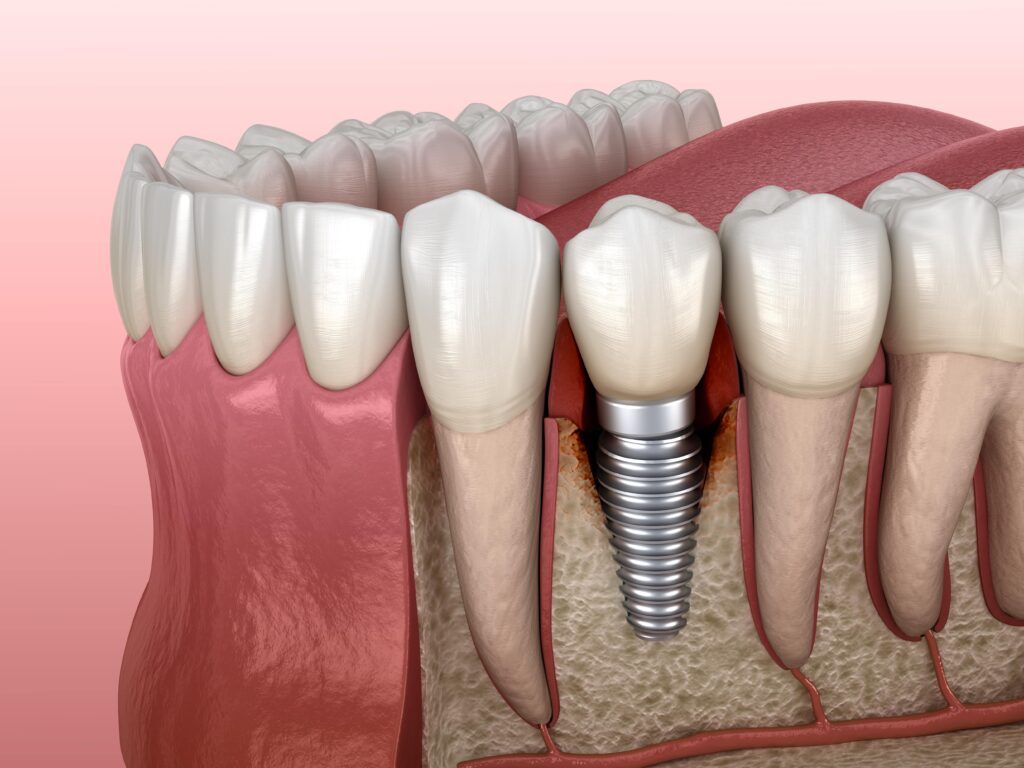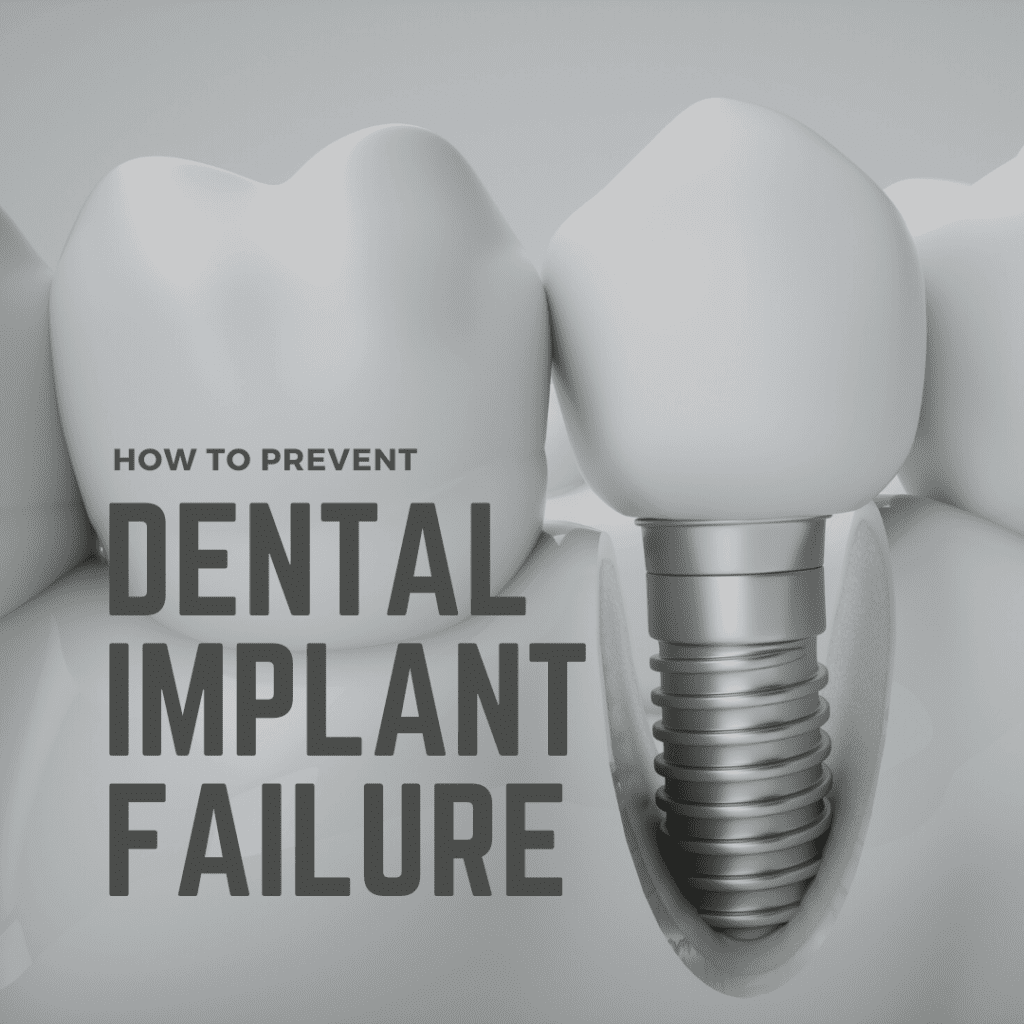Dental implants are the closest to natural teeth as you can get. Just like natural teeth, however, dental implants are not invincible. The success of dental implants is dependent on a number of factors, from the dentist who places them to the patient’s compliance with post-operative guidelines. This article will discuss how to prevent implant failure by looking at two important topics: common causes for implant failure and prevention strategies that will help increase your odds of successful dental implant placement.
Common Causes of Implant Failure
Infection

Infection is the number one cause of implant failure because infection around the implant site can damage the surrounding bone and compromise the implant. In most cases, infections are due to bacteria that accumulates along the gum line. Infections that affect the implants are known as peri-implant diseases.
Poor Implant Placement
Poor implant placement is another common reason for implant failure. When implants are not placed correctly, they can become loose and eventually fail. Implants may also be placed incorrectly due to inaccurate dental impressions that leave tiny gaps between the implant and the gums where bacteria can enter.
Inadequate Oral Hygiene
Inadequate oral hygiene is also a leading cause of implant failure. If plaque and bacteria are not regularly cleaned from the implant site, an infection can form in the gums and spread to the bone eventually leading to implant failure.
Smoking/Alcohol Consumption
Smoking and excess alcohol consumption can also increase the risk of implant failure. Nicotine and other chemicals in cigarettes can damage the bone and gum tissue around the implant, while alcohol can interfere with the healing process.
Strategies to Prevent Dental Implant Failure
There are a number of things you can do to prevent dental implant failure. These include:
Selecting a Qualified Implant Dentist
First, it is important to select a qualified implant dentist. Although many dentists advertise they can place dental implants, not all dentists have the same level of experience. Someone who has extensive experience placing implants and has a good track record for success is more likely to give you a good outcome. Therefore, it is important to do your research and find an implant dentist with the necessary expertise.
Follow Postoperative Guidelines
Second, follow the postoperative guidelines closely. Even if you choose the best implant dentist in your area, failing to follow the postoperative guidelines can easily lead to implant failure. Oftentimes these guidelines include brushing and flossing regularly, avoiding hard food items, and scheduling regular checkups and cleanings. You may also be instructed to take certain medications or abstain from certain activities.
Practice Good Oral Hygiene
Third, practice good oral hygiene habits. Brush your teeth at least twice a day and floss daily. This is not only important in the weeks following your implant placement, but it is important to maintain your implants over time. As mentioned above, inadequate oral hygiene can cause bacteria to accumulate around the implant. This can lead to infection, even once the implant has healed.
Avoid Smoking & Excess Alcohol Consumption
Fourth, avoid smoking and excess alcohol consumption. Both smoking and drinking excessive amounts of alcohol can weaken bone and gum tissue, lead to dry mouth, and alter blood flow, all of which can negatively affect your dental implants, oral health, and overall health.
Schedule Regular Checkups and Cleanings
Finally, you will need to schedule regular dental checkups and cleanings. A professional cleaning every six months will remove plaque and bacteria from your implant-supported restorations and gums, helping to prevent implant failure. Checkups every six months will also allow your dentist to ensure that your implants are healthy and functioning properly. In the case that something is wrong, regular checkups also allow your dentist to correct the problem before it gets really bad.
Preventing dental implant failure can seem like a daunting task, but if you follow these simple steps, you can increase your chances of a successful implant outcome. By selecting a qualified implant dentist, following postoperative guidelines, practicing good oral hygiene, avoiding smoking and excess alcohol consumption, and scheduling regular checkups and cleanings you can help to ensure the long-term success of your dental implants.

Dr. Sadati possesses extensive experience in all aspects of advanced restorative dentistry, with an emphasis in cosmetic and implant dentistry. He has attained Accredited Fellow status in the American Academy of Cosmetic Dentistry (AACD), the most rigorous, demanding credentialing process in the world. He is the only AACD Accredited Fellow in South Florida.


